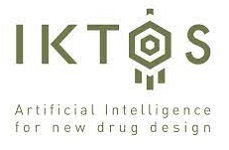Iktos, a company specializing in Artificial Intelligence (AI) for new drug design, today announced that it has entered into a Research Collaboration Agreement with Kadmon, a clinical-stage biopharmaceutical company based in New York, USA.
Iktos’s generative modelling artificial intelligence (AI) technology will be used to enable the rapid and cost-effective design of novel drug candidates for an undisclosed Kadmon drug discovery program. Under the agreement, Iktos will use its de novo structure-based generative modelling technology to identify novel compounds that match a pre-defined target product profile, with the aim of expediting Kadmon’s early phase discovery efforts.
Kadmon discovers, develops and delivers small molecules and biologics to treat human diseases. Kadmon is expanding and integrating novel drug discovery platforms, with the aim of identifying and developing new product candidates for significant unmet medical needs.
“Our collaboration with Iktos provides an exciting opportunity for Kadmon to combine Iktos’ innovative artificial intelligence (AI)-driven technology with Kadmon’s expertise in medicinal chemistry and structure-based drug design (SBDD) to accelerate novel target validation and to facilitate drug discovery”, said Jean (Ji-In) Kim, Senior Vice President, Head of Chemistry at Kadmon.
Iktos’ AI technology, based on deep generative models, helps bring speed and efficiency to the drug discovery process. Iktos’ technology automatically designs virtual novel molecules that have all of the characteristics of a successful drug molecule. This approach, now validated through Iktos’ other collaborations, is a novel solution to one of the key challenges in drug design: rapid identification of molecules which simultaneously satisfy multiple critical drug criteria, such as potency, selectivity, safety, and project-specific properties.
In early-stage discovery projects, Iktos’ technology allows the design of novel hits with optimal protein-ligand interactions, as predicted by molecular modelling technology. This approach enables the exploration of chemical space in a unique way and produces innovative molecule designs with greater Freedom to Operate. Furthermore, it drastically shortens the hit finding and hit-to-lead optimization phases by enabling multi-parametric in silico optimization from the start of a project.
“We are thrilled that Kadmon is engaging with Iktos to try expedite the discovery of a drug candidate on a promising target,” commented Yann Gaston-Mathé, President and CEO of Iktos. “We are proud to have earned the trust of our collaborators and are confident that Iktos’ software will improve Kadmon’s medicinal chemists’ ability to identify promising novel chemical matter and solve complex multi parametric optimization problems. The feedback from Kadmon’s research team will be highly valuable as we work to improve our product offering. Our strategy has always been to tackle challenging problems alongside our collaborators where we can demonstrate value generation for new and on-going drug discovery projects.”

